While hydration is often associated with the scorching heat of summer, its importance extends into the chillier winter months. As temperatures drop, so might the awareness around keeping hydrated, leading to potential health risks and wellness issues. This underestimation can affect physical performance, skin health, and overall vitality. The cooler climate brings unique challenges to maintaining adequate hydration levels, making it crucial to understand and adapt to these changes. This piece sheds light on the importance of staying hydrated during winter months, debunking myths, recognizing signs of dehydration, and adopting season-appropriate hydration strategies.
Contents
Misconceptions About Hydration in Winter
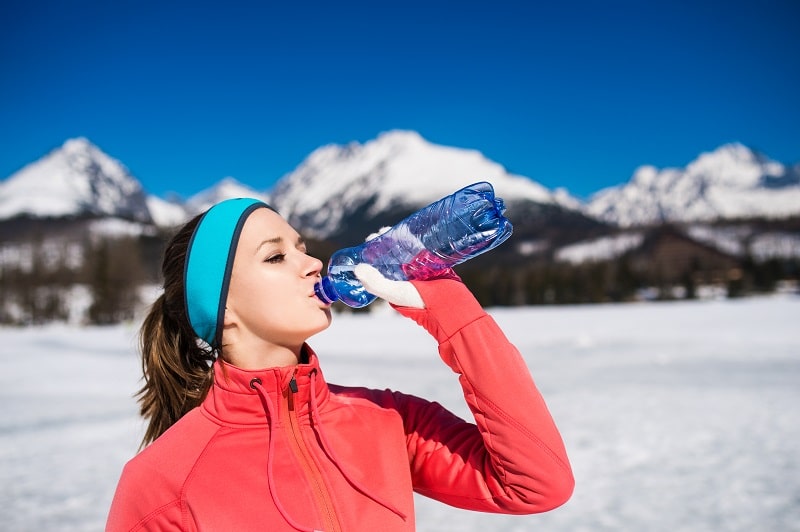
Despite the drop in temperature, the body’s need for water doesn’t freeze. Many hold the belief that decreased perspiration means reduced water intake is acceptable; however, this overlooks the body’s continuous need for hydration to function optimally. Winter air, both indoors and outdoors, is often drier, leading to quicker dehydration. The body’s thirst response is diminished in cold weather, leading individuals to drink less water, unknowingly paving the way for dehydration. Recognizing and addressing these misconceptions is the first step toward maintaining hydration, irrespective of the weather.
Another misconception is that beverages like hot cocoa or tea can substitute for water intake. While they may provide temporary warmth and comfort, many winter beverages contain caffeine or sugar, which can actually lead to further dehydration. It’s also commonly overlooked that heating systems in homes and workplaces can create a dry environment, further increasing the need for regular water intake. Therefore, it is crucial to understand that hydration must remain a priority and that certain winter habits can inadvertently increase dehydration risks.
Recognizing Dehydration in Colder Weather
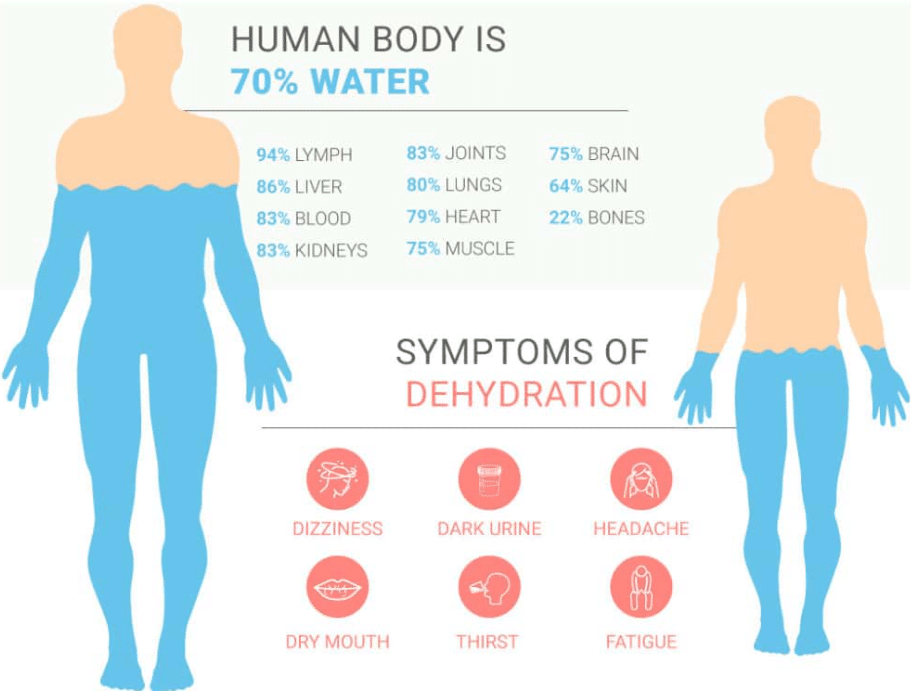
Identifying dehydration in winter can be deceptive, as the usual thirst signals may not be as pronounced. Symptoms might include chronic mild headaches, irritability, or even drier skin. It’s vital to understand that these symptoms can be exacerbated by the cold, leading to a diminished desire to drink water. Additionally, urine color as a hydration indicator becomes even more important in winter, with darker shades signaling a need for increased fluid intake.
Beyond the physical signs, dehydration can also manifest in decreased physical performance, especially during winter sports or activities. Muscles may fatigue faster, recovery can slow down, and overall endurance might decrease. Even mild dehydration can impair cognitive functions, leading to slower reaction times and diminished alertness. These subtle yet impactful signs are crucial to recognize for anyone wanting to maintain an active and healthy lifestyle during the colder months.
How Winter Activities Affect Hydration Needs

Engaging in winter sports such as skiing or snowboarding requires significant energy and, consequently, hydration. The cold weather masks sweat loss, leading individuals to underestimate the amount of fluids lost during these activities. Additionally, the effort of warming the body in cold conditions increases metabolic rate, further boosting fluid requirements. It’s essential for winter sport enthusiasts to preemptively hydrate and recognize the increased need for water.
Indoor heating systems, while keeping environments comfortably warm, contribute to a drier atmosphere indoors. This dry air can lead to increased respiratory fluid loss, a less obvious but significant form of dehydration. Regularly hydrating becomes essential, not just for those actively participating in winter sports but for anyone spending extended periods in heated environments. Adapting hydration strategies to these conditions ensures that the body remains well-hydrated and healthy.
Benefits of Staying Hydrated in Winter
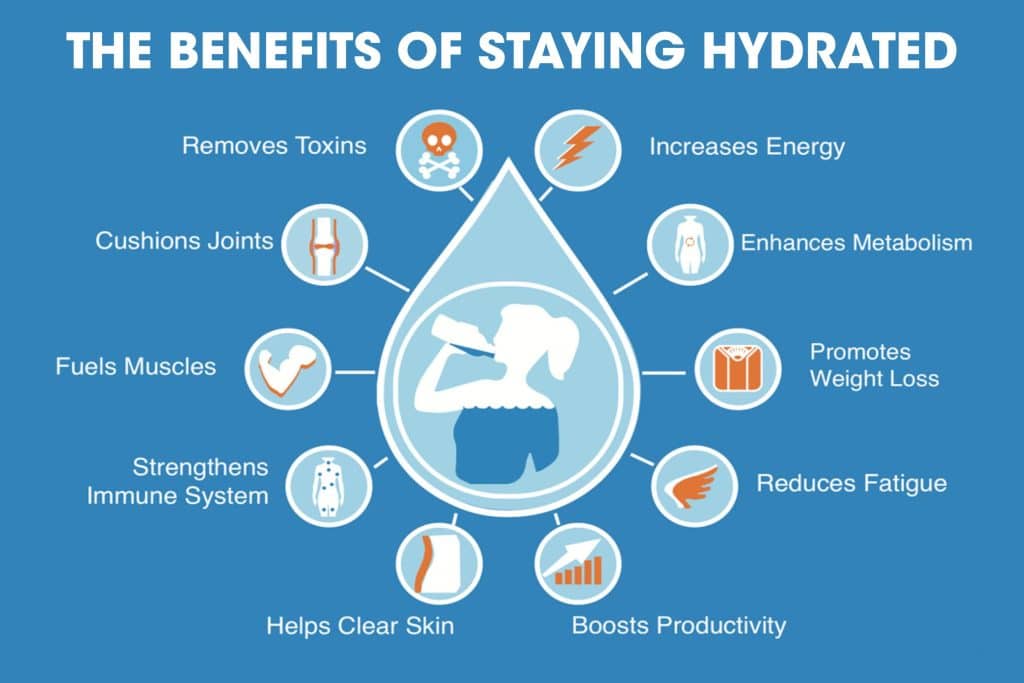
Hydration is a key factor in maintaining a robust immune system, especially important in the winter months when people are more susceptible to illnesses. Adequate water intake helps in the production of lymph, which carries white blood cells and other immune system cells. Additionally, staying hydrated helps maintain mucosal membranes moist, which are the body’s first line of defense against pathogens.
Beyond bolstering the immune system, proper hydration aids in maintaining skin health, often challenged by harsh winter conditions. It helps in reducing dryness and flakiness, keeping the skin more resilient against the cold. Furthermore, hydration supports overall physical performance and mental clarity, counteracting the sluggishness often felt during darker, colder days. The benefits of maintaining hydration are comprehensive, impacting nearly every aspect of health and well-being during winter.
Best Practices For Hydrating In Cold Climates

Adopting a proactive approach to hydration can significantly mitigate the winter-induced risk of dehydration. One effective strategy is to set regular reminders to drink water throughout the day, ensuring consistent intake. Room-temperature water is often more appealing in cold weather and can be easier to consume in sufficient quantities. Additionally, keeping a reusable water bottle handy serves as a visual reminder and makes it more convenient to stay hydrated.
Incorporating hydrating foods into one’s diet, such as soups, broths, and water-rich fruits and vegetables, is another practical approach. These not only provide hydration but also warmth and nutrition, making them ideal for colder months. Herbal teas can also be a good alternative, offering hydration without the caffeine found in regular tea or coffee. Understanding and implementing these best practices for hydration can make a significant difference in maintaining health and well-being during winter.
Challenges To Hydrating Properly In Winter

One of the main challenges to staying hydrated during the winter is the reduced inclination to drink water due to decreased thirst response. This natural physiological adaptation can lead to inadvertent dehydration if not consciously counteracted. Furthermore, a preference for hot and often caffeinated beverages over plain water can exacerbate dehydration, making it essential to balance these with adequate water intake.
Another hurdle is the lifestyle changes that winter brings, such as spending more time indoors with central heating, which can create a deceptively cozy but dehydrating environment. Overcoming these challenges requires awareness and deliberate changes in hydration habits. It’s about creating and maintaining a routine that ensures fluid intake is sufficient, regardless of the weather outside or the comfort inside.
Effects On Illness Prevention
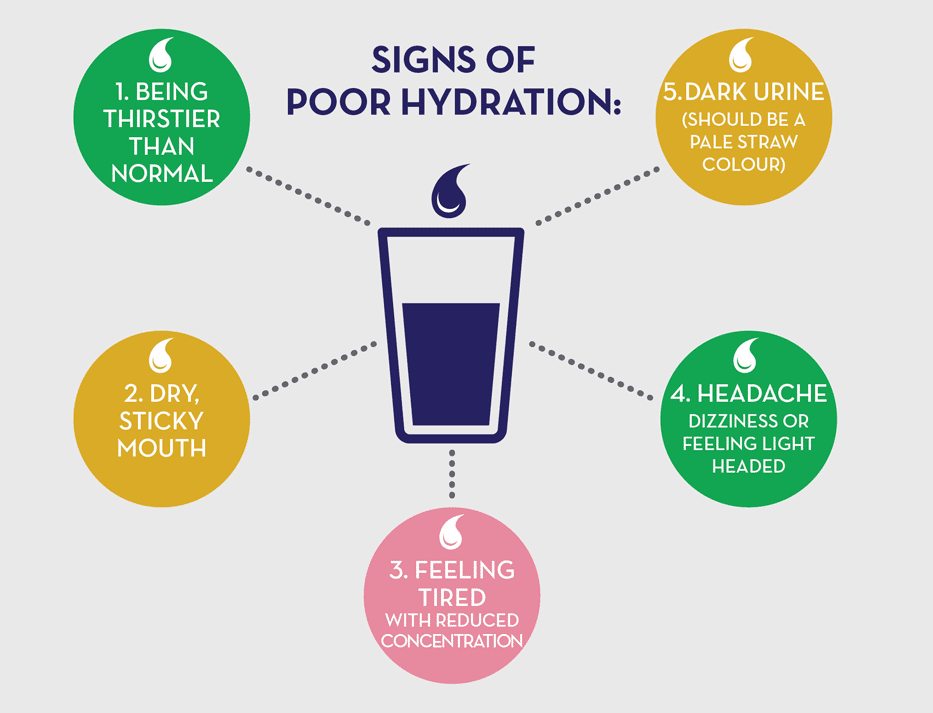
Staying hydrated plays a crucial role in preventing illness, particularly in winter when the body is more susceptible to infections like the flu and colds. Proper hydration helps maintain the functionality of the immune system, ensuring it operates at its best. Mucous membranes, which are part of the body’s first line of defense against pathogens, stay moist and effective in trapping and expelling viruses when the body is well-hydrated.
Moreover, adequate hydration can aid in detoxification processes, helping to flush out toxins and waste products that can accumulate and contribute to illness. As the body battles colder temperatures and potential pathogens, staying hydrated is key to supporting its natural defense systems. It’s not just about drinking more water; it’s about supporting overall health resilience during a season of vulnerability.
Hydration And Mental Well-Being
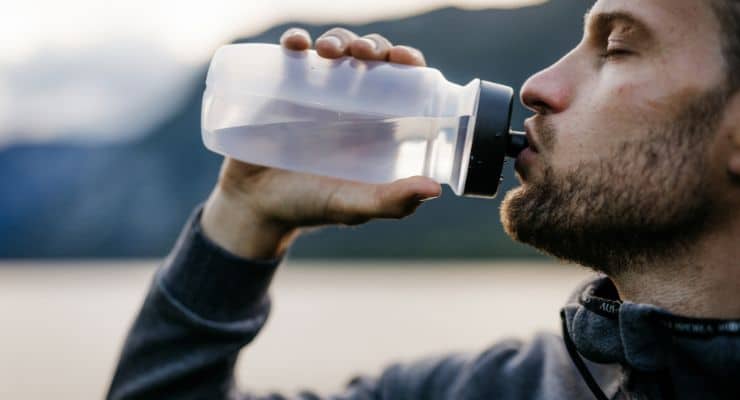
The effects of hydration extend beyond the physical, significantly impacting mental health and well-being, especially during the long, dark winter months. Proper hydration facilitates optimal brain function, improving concentration, cognition, and mood. The brain is highly sensitive to hydration levels, and even mild dehydration can lead to feelings of anxiety or mood swings, which are particularly unwelcome during the already challenging winter season.
Furthermore, staying hydrated can help combat the lethargy and fatigue commonly associated with shorter days and less sunlight. By maintaining a regular hydration routine, individuals can enhance their energy levels and mental clarity, making it easier to tackle the day with vigor and positivity. As such, understanding the link between hydration and mental well-being is crucial for maintaining a balanced and healthy outlook throughout the winter months.
Quench Your Winter Thirst For Wellness
As winter unfolds, embracing hydration is key to maintaining health and vitality. Recognizing the unique challenges and benefits of staying hydrated during these months is crucial. Let this knowledge empower you to make conscious choices about fluid intake, ensuring you enjoy the season to its fullest. Start today by adjusting your hydration habits, and encourage those around you to do the same for a healthier, happier winter season.


